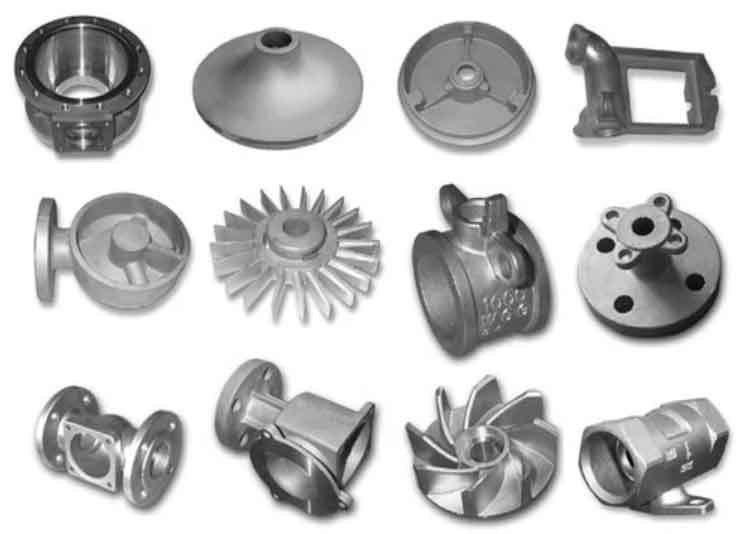Custom casting parts provide tailored solutions to meet unique requirements in various industries. These parts are specifically designed and manufactured to meet the precise specifications and functional needs of a particular application. Here are some key aspects of custom casting parts:

- Design Flexibility: Custom casting parts offer design flexibility, allowing for the creation of complex geometries, intricate details, and unique shapes. This flexibility enables engineers and designers to optimize the component’s performance, functionality, and integration within the larger system.
- Material Selection: Custom casting parts can be manufactured from a wide range of materials, including metals (such as steel, aluminum, copper, and titanium), alloys, and even specialized materials like superalloys or heat-resistant materials. The choice of material depends on factors such as mechanical properties, chemical resistance, temperature resistance, and desired performance characteristics of the component.
- Production Techniques: Custom casting parts can be produced using various casting techniques, such as sand casting, investment casting (also known as lost wax casting), die casting, or even advanced methods like additive manufacturing (3D printing). The selection of the casting method depends on factors like component complexity, material, required tolerances, and production volume.
- Quality Assurance: Custom casting parts undergo stringent quality control processes to ensure their performance, reliability, and conformance to specifications. Quality control measures include material testing, dimensional inspections, non-destructive testing (NDT), and performance testing to verify mechanical properties and functionality.
- Prototyping and Iterative Development: Custom casting parts are often developed through prototyping and iterative processes. Prototypes allow for testing and validation of the design, functionality, and fit within the larger system. This iterative development approach ensures that the final custom casting part meets the required specifications and performs optimally.
- One-Off or Low-Volume Production: Custom casting parts are well-suited for one-off or low-volume production requirements. These parts can be produced in small quantities without the need for expensive tooling or setup costs associated with mass production. Custom casting parts enable cost-effective production of unique, specialized components.
- Application-Specific Solutions: Custom casting parts are ideal for applications that require specific performance characteristics, such as high strength, corrosion resistance, heat resistance, or precise dimensional accuracy. Industries such as aerospace, automotive, energy, oil and gas, and industrial equipment often rely on custom casting parts to meet their unique application requirements.
Custom casting parts provide tailored solutions to address specific challenges and requirements in diverse industries. By leveraging design flexibility, material selection, and advanced casting techniques, manufacturers can deliver high-quality, application-specific components that meet the unique needs of their customers.
